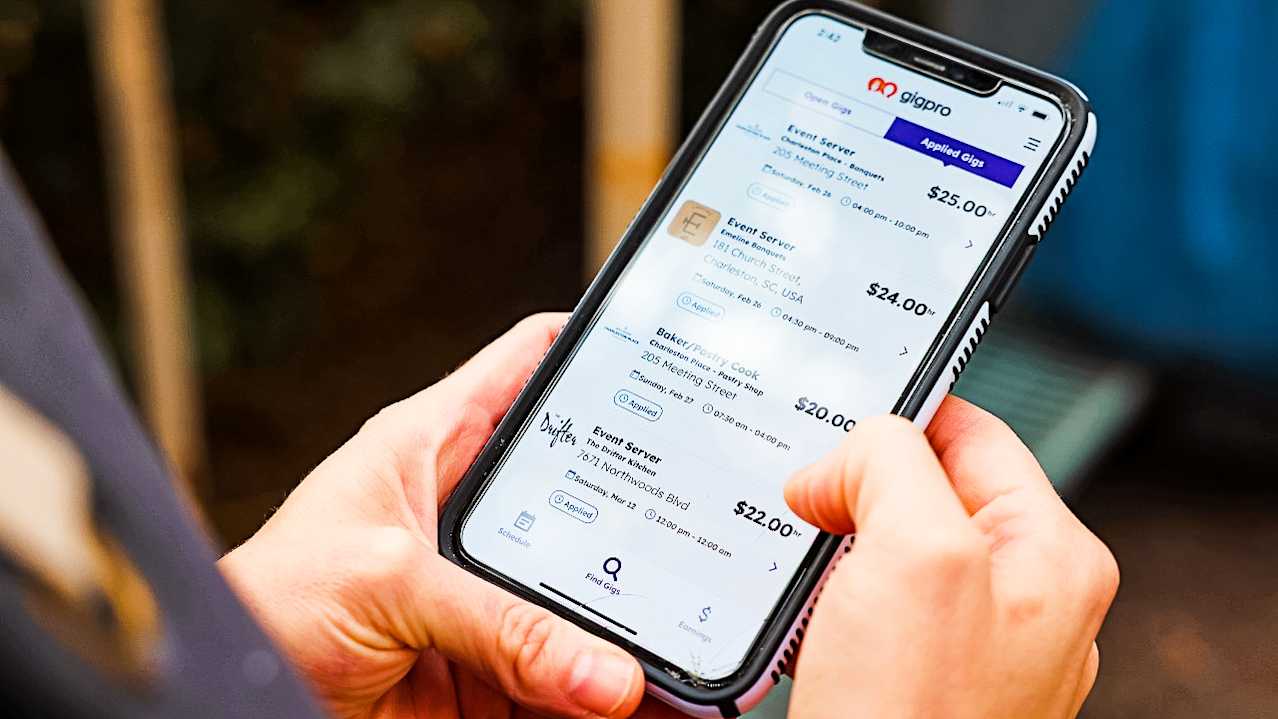Tips On Creating Your Pro Profile

Once you download the app via Android Google Play Store or Apple Store you will want to complete your Pro profile. The stronger your Pro Profile appears, the more likely businesses are to select you!
Your Pro Profile Completion Should Include 6 Main Things:
Number of years in hospitality
Professional experience
Special Skills
Education or certifications
Appropriate selfie or headshot
Completion of availability/preferred shifts
Professional Experience & Attributes:
Industry experience: Number of years in the hospitality industry along with your work history
Customer service: Providing exceptional customer service is key in hospitality. This includes being able to anticipate guests' needs and exceed their expectations.
Attention to detail: Attention to detail is important in hospitality to ensure that guests have a seamless experience and that everything is perfect for them.
Adaptability: The hospitality industry is fast-paced and constantly changing. Being able to adapt to new situations quickly is important.
Teamwork: Hospitality is a team-oriented industry, and working well with others is crucial to success.
Time management: The ability to manage time effectively is important in hospitality to ensure that guests are served promptly and that operations run smoothly.
Professionalism: Maintaining a professional demeanor at all times is important in hospitality to ensure that guests have a positive experience.
Multitasking: In hospitality, it's common to have multiple tasks to handle at the same time. Being able to multitask effectively is important.
Problem-solving: The ability to identify and solve problems quickly and effectively is important in hospitality to ensure that guests' needs are met.
Positive attitude: Maintaining a positive attitude and a can-do spirit is important in hospitality to ensure that guests feel welcome and comfortable.
Special Skills:
Menu knowledge: Being knowledgeable about the menu items, ingredients, and preparation methods is important to be able to make recommendations and answer guests' questions.
Food and beverage service: Knowing how to properly serve food and beverages, including wine and other alcoholic beverages, is an important skill in the restaurant industry.
Reservation management: The ability to manage and organize restaurant reservations effectively is important to ensure that guests are accommodated in a timely and efficient manner.
Point of Sale (POS) systems: Being proficient in using POS systems is important for managing orders, payments, and inventory in a restaurant.
Food safety and sanitation: Understanding food safety regulations and implementing proper sanitation procedures are critical to maintaining a clean and safe environment for guests.
Upselling: Knowing how to upsell menu items, drinks, and desserts is an important skill to increase revenue and enhance guests' experience.
Language proficiency: Being proficient in multiple languages is beneficial in the hospitality industry to communicate effectively with guests from different cultural backgrounds.
Event planning and coordination: Knowing how to plan and coordinate events, such as weddings and corporate meetings, is an important skill in the hospitality industry.
Conflict resolution: Knowing how to handle conflicts and customer complaints professionally and effectively is important in the hospitality industry.
Attention to detail: Paying close attention to details, such as table settings, menu presentation, and food presentation, is important to ensure that guests have a positive dining experience.
Special skills are important to include because even if you don’t have experience with a certain skill or have an education in Hospitality, your special skills define other attributes about you that businesses will recognize as they’re looking for the right workers to fill their shifts.
Education or Certifications:
Bachelor's degree in hospitality management: This degree provides students with a comprehensive understanding of the hospitality industry, including hotel and restaurant management, event planning, and tourism.
Associate degree in culinary arts: This degree program prepares students for careers in the culinary industry, including food preparation, cooking techniques, and kitchen management.
Certified Restaurant Manager (CRM) certification: This certification program is offered by the National Restaurant Association Educational Foundation and demonstrates proficiency in restaurant management skills.
Certified Hospitality Supervisor (CHS) certification: This certification program is offered by the American Hotel and Lodging Educational Institute and demonstrates proficiency in supervisory skills for the hospitality industry.
ServSafe certification: This certification program, offered by the National Restaurant Association, provides training in food safety and sanitation, which is important in the restaurant industry.
Wine and Spirits Education Trust (WSET) certification: This certification program provides training in wine and spirits knowledge and is beneficial for those pursuing careers in the beverage industry.
Event planning certification: There are several event planning certification programs available, including those offered by the International Live Events Association and the Meeting Professionals International.
These certifications and degrees can help you develop the knowledge and skills needed to succeed in the hospitality or restaurant industry and demonstrate your expertise to potential employers.
Finally, you’ll want to add a selfie! Here are some tips on perfecting the Gigpro selfie:
Lighting: Make sure that the lighting is good and that your face is well-lit. Natural light is often the best option, but if you're indoors, position yourself near a window or use artificial light to create a flattering glow.
Background: Choose a clean, uncluttered background that doesn't distract from your image.
Pose: Use a pose that feels natural and comfortable, and make sure that you're facing the camera directly.
Smile: A friendly, genuine smile can help to convey a positive and professional image.
Clothing: Dress appropriately for the context of the selfie. If you're taking a professional selfie, dress in attire or clothing that is appropriate for the hospitality industry.
Camera angle: Hold the camera at eye level or slightly above to create a flattering angle.
Remember that a professional selfie is not about showing off, but about presenting yourself positively and professionally.
Lastly, don’t forget to step through the process of selecting your Pro Profile information. Make a selection in criteria to identify the days of the week and shift times you have availability. This is an important piece of making sure you see and are seen by employers with gigs that match your skill sets and availability. Following these tips will help you to stand out from the crowd and be more likely to be chosen by businesses for Gigs!


